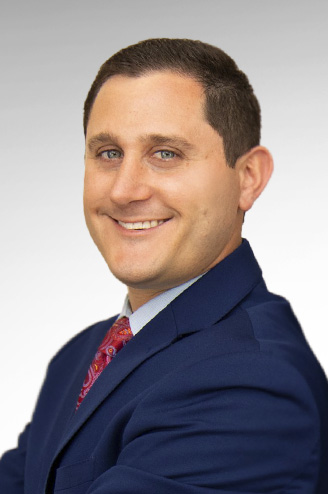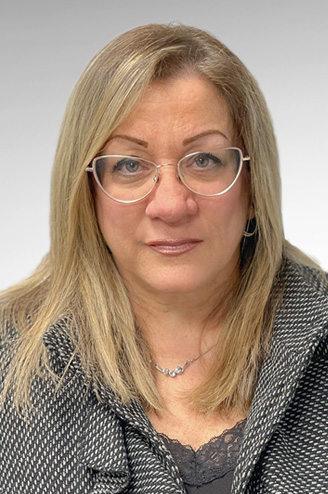New Jersey PIP Arbitration Attorney
In New Jersey, every driver is required to carry auto insurance, including personal injury protection (PIP) which covers medical expenses and other items if you are injured. When you have an established contract with your insurer, you pay the premium and expect to be covered should you be injured in a car accident. When the insurance company denies your claim and refuses to pay, that may be considered a breach of contract and you may be entitled to take legal action.
While most legal disputes are resolved through a lawsuit and court battle, disputes with insurance companies over PIP coverage are typically handled in a streamlined process known as arbitration.
What Is PIP Insurance?
New Jersey is a no-fault state, meaning when car accidents occur, each driver likely turns to their own insurance coverage first, regardless of who is considered at fault for the accident.
One benefit of no-fault laws is that you can receive medical care immediately following the accident without waiting for each driver’s insurance carrier to determine who caused the accident.
What Does PIP Insurance Cover?
PIP coverage only applies to a person, not vehicles, and primarily covers only medical costs related to the accident, such as:
- Hospital costs, including emergency room visits, inpatient stays, and emergency surgeries.
- Appointments with health care providers, including surgeons, neurologists, physical and occupational therapists, and other specialty practitioners.
- Rehabilitation treatments.
- Prescription medications for accident-related injuries.
- Medical equipment, including prosthesis.
- Income loss, essential services, and death or funeral expense benefits, in some cases.
Despite coverage of these costs, insurance carriers may deny claims involving treatment approval or compensation for completed treatments. When this happens, you can file an appeal and seek legal intervention to resolve the dispute.
Most insurance policies contain a provision regarding the process for handling disputes. Policies typically say that if the company and the insured do not agree on the amount payable under the coverage, the matter will likely be decided by arbitration.
What Is Arbitration?
Arbitration is a method of resolving disputes in a less costly and time-consuming manner than a lawsuit. During the process, each side presents evidence to impartial third-party arbitrators who will hear the case and determine the outcome. Once the arbitrator rules, the decision is binding and both parties are obligated to abide. Appeals are not permitted in arbitration.
When Is Arbitration Necessary?
When your claim is denied or expenses unpaid, insurance companies may claim you did not meet one of several requirements, such as:
- You were not covered or ineligible for PIP.
- Treatment was not pre-certified.
- Treatment was deemed unnecessary.
- Policy limits exceeded.
- Incorrect billing codes.
- Inadequate documentation provided.
- Insurance company claims you did not cooperate.
Arbitration can be called by either you or the insurance company, and, in some cases, your medical providers.
What Is the Arbitration Process?
Arbitration is a straightforward process, considerably more streamlined than a court hearing. Each side makes demands and the other responds while a neutral third-party listens, observes, reviews all evidence, and makes a decision. The process entails selecting arbitrators and an arbitration hearing.
Arbitrator Selection
Policies generally state whether a single arbitrator or a panel of three arbitrators will hear the matter. If both parties agree on a specific arbitrator, that person will be appointed. If the parties cannot agree, each side may select one arbitrator and those two will choose the third by mutual agreement.
Selecting an arbitrator is an important part of the process, as arbitrators offer a wide range of different backgrounds and experiences. Your attorney will know and have prior experience with several arbitrators and select the one most suited to your case.
Arbitration Hearing
Once arbitrators are selected, a hearing will be scheduled to present evidence and any witnesses your attorney intends to call. Your attorney will provide all evidentiary documents and witness lists to the arbitrator ahead of the hearing. Evidence supporting your claim may include:
- Proof of pre-certification: Documentation proving your treatment was pre-certified as medically necessary for your injuries.
- Medical reports: Records detailing all treatments you received, including specialized testing and surgeries and why they were medically necessary.
- Assignment of benefit: Written proof of your request that payment for your medical expenses be made directly to a health care facility or physician.
- Explanation of benefits: A billing summary from your provider showing what was paid and to whom.
- Witnesses: Though not always necessary, your attorney may want to include your doctor and other experts who can testify to your injuries and treatments.
One of the most common denials insurance companies cite is “no coverage,” meaning the treatment you received is not covered under your policy or that you declined coverage. To prove the validity of the denial, request a signed copy showing you declined the coverage. If the insurance company cannot provide proof, this may be considered evidence in your favor.
New Jersey Car Accident Lawyers at Ellis Law Help Clients During PIP Arbitration
When your car insurance carrier denies coverage for medical treatment, you may have options to enforce the policy. Our New Jersey car accident lawyers at Ellis Law have experience handling PIP arbitration cases. Call us at 732-308-0200 or contact us online today to schedule a free consultation. Located in Freehold, New Jersey, we serve clients in Asbury Park, East Brunswick, Toms River, Middletown, Jersey City, Long Branch, Neptune, Hudson County, Union County, Essex County, Monmouth County, Marlboro, and Ocean County, as well as Brooklyn and New York City.






